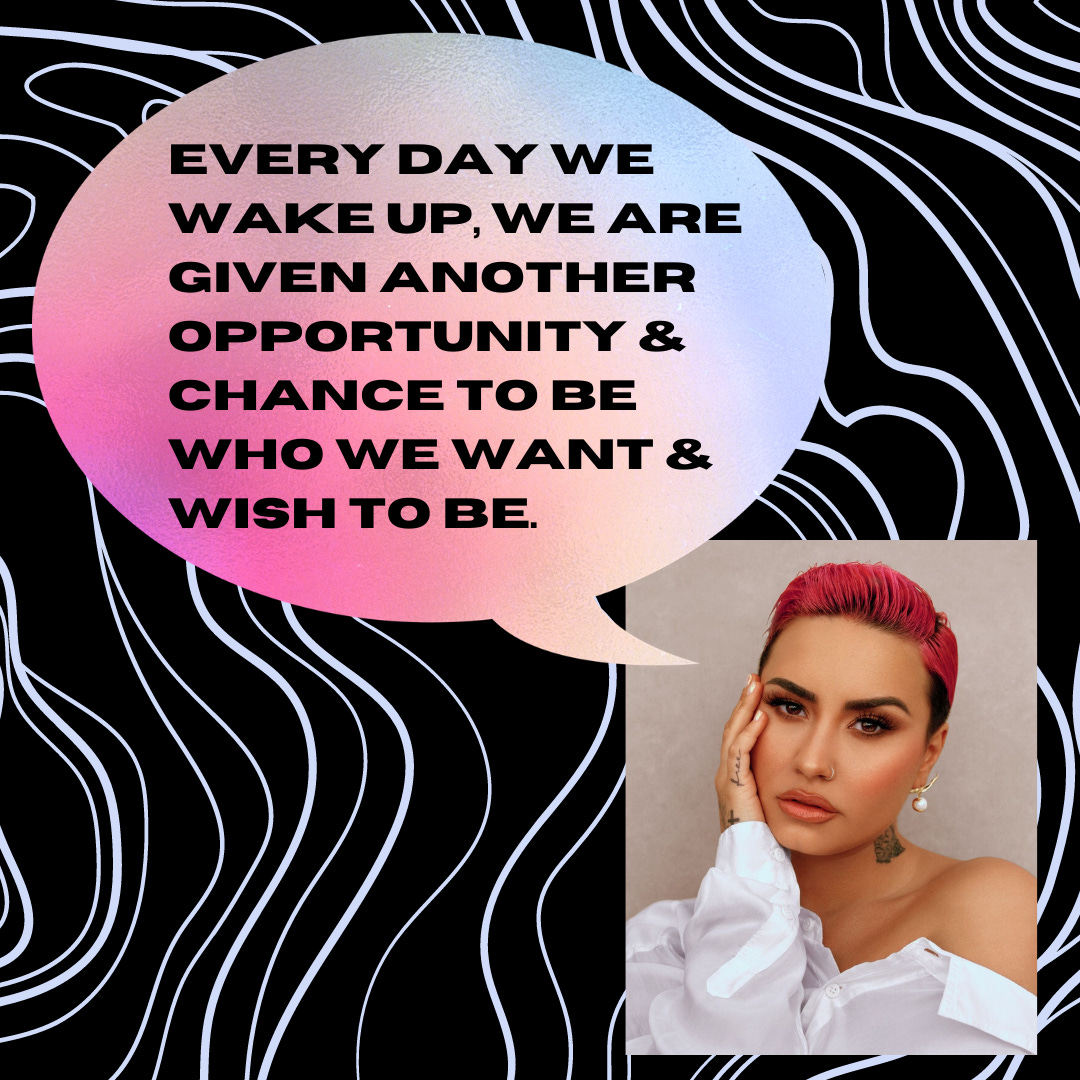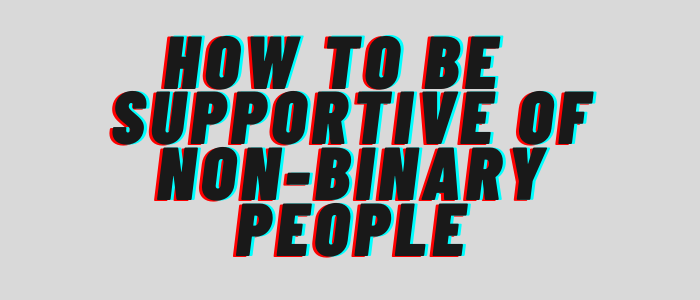What’s YOUR desired pronoun? This week we wanted to address a question that is becoming increasingly more common as companies and universities are adopting this method of tapping into gender non-binarism. Demi Lovato announced last week that they identify as non-binary and will now be using the pronouns they/them. We are finally, as a societal whole, able to recognize the fluidity of identity in 2021 having one of the most famous ex-Disney stars announce their desired pronouns. F—k yeah. (However, let’s not forget that celebrities are problematic in their own right and should be held accountable for their actions regardless of the gender identity they use...)
If this is new territory for you, you do not have to fully understand what it means for someone to be non-binary to respect them. If this isn’t, then *~scroll down~* to join us for a May Book Club pick or forward this to a friend to better understand your needs.
It’s important to understand the basis in which the term non-binary lies. The terms 'Sex' and 'gender' are quite often used interchangeably in our society, despite having completely different meanings. Sex refers to a set of biological attributes in humans and animals. Gender refers to the socially constructed roles, expressions and identities, thus enforcing only two genders in a heteropatriarchal society such as ours.
The idea that there are only two genders is sometimes called a “gender binary,” because binary means “having two parts” (male and female). Therefore, “non-binary” is one term people use to describe genders that don’t fall into one of these two categories, male or female. For example, some Indigenous communities have terms in their own languages for the gender-spectrum members of their communities and the social and spiritual roles these individuals embrace; with over 500 surviving Native American cultures, attitudes about sex and gender can be very diverse.
The Trevor Project’s 2021 National Survey on LGBTQ Youth Mental Health reported that 42% of LGBTQ youth seriously considered attempting suicide in the past year. However, for those that had access to spaces that promoted inclusivity and affirmed their sexual orientation and gender identify reported lower rates of attempting suicide.
Identities that some people don’t understand still deserve respect. Use the name a person asks you to use. Just FYI folks, the name you may have been using may not reflect their gender identity. Please do not ask someone what their old name was. It’s f—king rude.
Do not make any assumptions about people’s gender. You do not need to know if someone is non-binary-passing by looking at them, just like how you can’t tell if someone is transgender just by how they look.
If you want to use a pronoun, just ask what they prefer. Some non-binary people use the pronoun “they” while others may use “he” or “she,” or other pronouns. It’s all about R-E-S-P-E-C-T. Cue Aretha Franklin.
Advocate for non-binary friendly policies. Non-binary folks need to be respected in ALL spaces such as at work, school, in a bathroom, the list can go on foreves. Non-binary people should be supported by being able to use the restroom that they believe they will be safest in. Check out & share our latest IG post detailing the new Tennessee Governor Bill Lee signed earlier this month which requires businesses and public spaces to warn the public that they serve transgender and non-binary members of the community. Yeah, gross.
p.s. Fembots: EDUCATE YOURSELF. For May, we wanted to include a book that is 100% FREE for you to download here >> https://www.lesliefeinberg.net.
In the Author’s Words:
“I have been isolated by illness from discussions about language for more than half a decade…”
“People who have lived very different lives have generously related to me the similarities they recognized in these pages with their own struggles—the taste of bile; the inferno of rage—transsexual men and women, heterosexual cross-dressers and bearded females, intersexual and androgynous people, bi-gender and tri-gender individuals, and many other exquisitely defined and expressed identities.”
“The use of the word ‘transgender’ has changed over the two decades since I wrote Stone Butch Blues. Since that time, the term ‘gender’ has increasingly been used to mean the sexes, rather than gender expressions. This novel argues otherwise.”
If you’re loving this free version of Fembot, don’t forget that we offer paid subscriptions for those who want a lil’ more loving in your inbox ✨
—-
Post written by Alissa, Founder of Fembot. As always, don't forget to follow us on Instagram or Facebook. Join our safe space community group on Facebook or our Intersectional Feminist Book Club. Or simply pay for a yearly subscription of this Fembot newsletter below.





Oh barf.